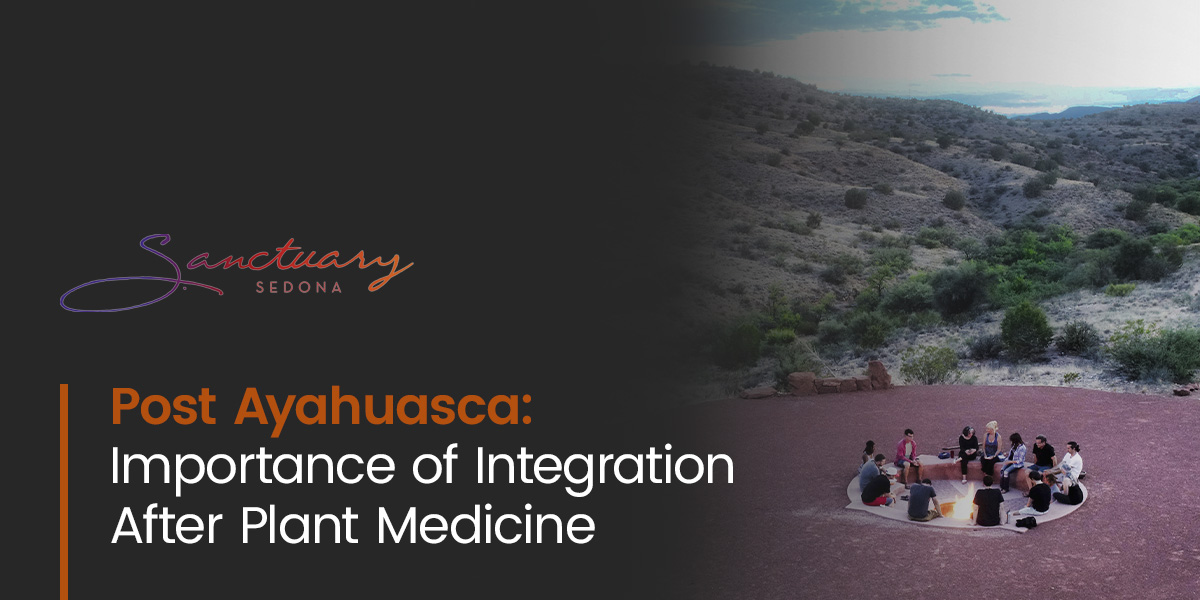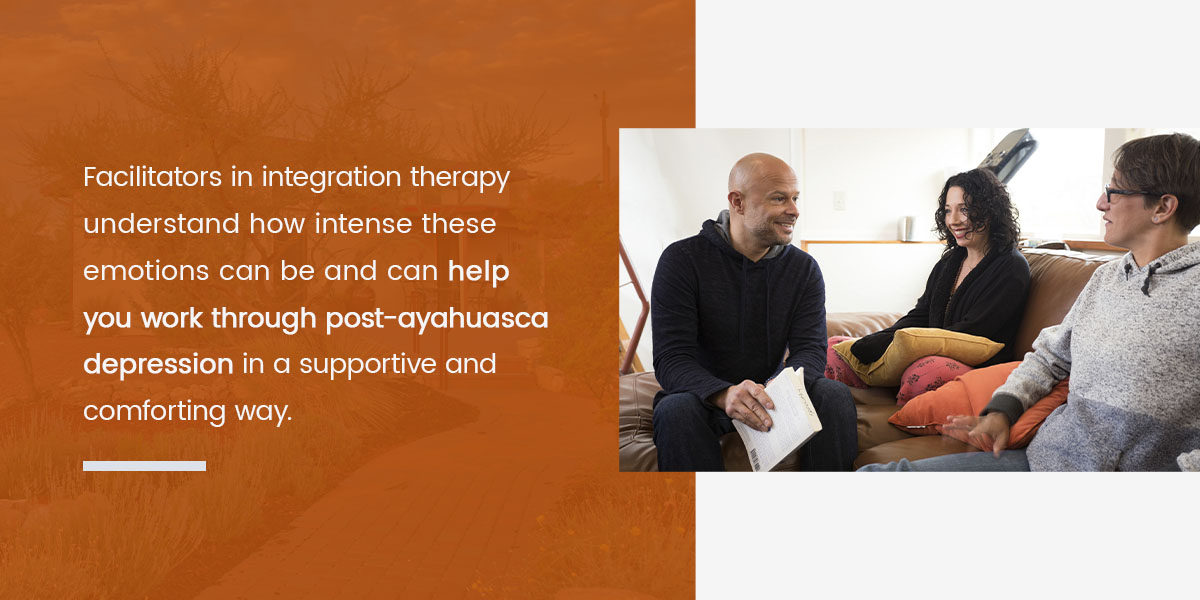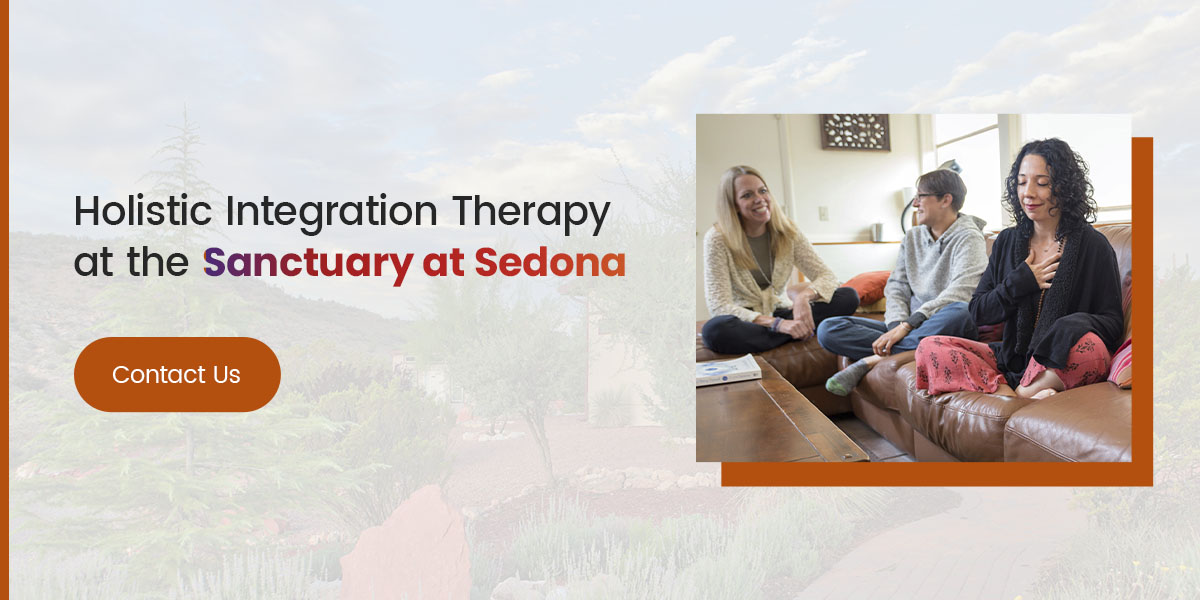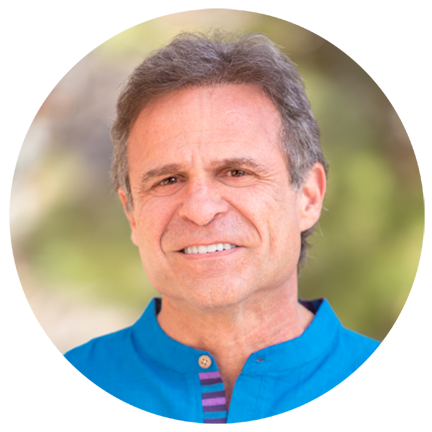Plant medicines have been used for physical and spiritual healing for many centuries. Today, these medicines serve similar purposes and can be used as an approach to healing addiction and trauma. While natural therapeutics like ayahuasca can have many benefits, integration therapy post-retreat or ceremony can be essential for ongoing transformation and support.
What Is Ayahuasca?
Ayahuasca is a sacred South American plant medicine made with Psychotria viridis shrub and Banisteriopsis caapi vine. It is used for religious and spiritual purposes in some South American communities and ayahuasca retreats. The Psychotria viridis shrub naturally contains N,N-dimethyltryptamine (DMT), a psychoactive compound. Banisteriopsis caapi vine has β-carbolines, a form of Monoamine oxidase inhibitors (MAOIs).
Combining these plant ingredients creates a liquid or brew, providing powerful effects on the nervous systems, like increased connectivity between different brain areas. It can also have therapeutic effects like reducing anxiety and depression and increasing emotional processing and healing.
An experienced healer or shaman brews and administers this tea at ayahuasca retreats, guiding various participants through a reflective and healing journey. Some people join these retreats for reasons like addiction, depression and trauma and experience healing and many other transformative benefits after that.
What Is Plant Medicine Integration Therapy?
Plant medicine integration therapy is an integrative, holistic approach to dealing with addiction. It involves working with an experienced facilitator or therapist after a psychoactive experience like ayahuasca. These sessions provide support and guidance to maximize the benefits of your ayahuasca experience and help you continue with your transformation and adjustment in daily life. It includes discussing and working through your experience and emotions post-ayahuasca to help you understand and prosper from your teachings and insights from medicine.
Why Is Integration Therapy Important Post Ayahuasca?
Integration therapy is essential after ayahuasca because it can help you understand and align your insights with daily life. Some of your experiences, like reliving past realities and trauma, can be confusing and challenging to process. They can also be difficult to talk about and relate to people outside the retreat.
Integration therapy can help you process these insights in a supportive and compassionate environment. Many therapists have first-hand experience with plant medicine and can offer appropriate techniques and advice for ongoing change and healing. Here are some benefits of integration therapy:
1. Processing and Healing
One of the most significant challenges is processing what you learn during the ceremony and integrating it into your daily life. You might learn perspectives and have life-changing experiences that can be difficult to interpret initially. Understanding these experiences is essential for building a new way of life and healing from your past or old self. Psychedelic integration therapy can help you acknowledge your teachings and use them to foster long-lasting changes to recover from addiction or other trauma.
2. Emotional Support
For some people, processing and healing can be quick post-retreat, while others find it challenging to make sense of everything. You might deal with hard-to-understand or suppressed emotions during your ceremony. These feelings can be overwhelming and bring up past feelings of anxiety and stress. Facilitators in integration therapy understand how intense these emotions can be and can help you work through post-ayahuasca depression in a supportive and comforting way.
3. Non-Judgmental Environment
You can create deep and meaningful connections with people in similar situations at an ayahuasca retreat. You discuss, share and support each other through your experience. This bond can give you a sense of community and belonging. Relating your insights and feelings to people who have not been through the ceremony can be challenging.
Family, friends and colleagues can have difficulty grasping what you’ve been through, making you feel isolated. Integration therapy offers a safe and non-judgmental environment to communicate your feelings and talk about insights from the medicine.
4. Commitment to Transformation
Your ayahuasca journey is ongoing and essential after the retreat. It requires implementing your lessons from the ceremony to move forward and begin your new chapter. Without proper guidance, your healing and transformations can be momentary. A therapist can work with you to integrate your insights into and practice what you’ve learned daily, helping you stay committed to your transformation, new perspective and beginning.
How to Integrate Your Ayahuasca Experience Into Everyday Life
Following post-retreat guidelines is one way to integrate your ayahuasca experiences into your daily life successfully. These practices can help you successfully prepare and engage in your healing. Here are seven tips for integrating ayahuasca into everyday life:
- Spiritual practice: Set aside time to free your mind and consider your thoughts and feelings through spiritual practices like meditation, yoga, prayer and journaling. This task can encourage reflection and introspection and help you prioritize self-care.
- Nutrition and physical activity: Ayahuasca retreats emphasize the importance of caring for your body, including what you eat and drink. Try cutting down on alcohol, red meat and processed foods, and be mindful and intuitive about your eating. Exercise like walks, runs and yoga can help you stay energized and connected to your spiritual lessons.
- Social support: Staying connected with other ayahuasca participants can help navigate post-retreat life and offer valuable support. You can create a WhatsApp group or follow a newsletter to ask questions and learn coping mechanisms.
- Embrace nature: Nature is a significant part of ayahuasca and teaches that earth can heal and be therapeutic. Spend time outdoors connecting to the earth and creating a deeper connection. For example, you can walk barefoot on the ground, seeing the roots as your foundation growing you and the sun as light giving you life.
- Mind and body care: What you put in your body is as essential as what you consume mentally. Be mindful of the time spent on social media and the content you watch and read. Focus on valuable content that helps you reconnect and focus on your journey.
- Trust the process: Healing and transformations can be a longer journey for some than others. Try to be kind, not put too much pressure on yourself and focus on reaching your goals one day at a time.
- Professional integration therapy: A qualified and experienced therapist can help you apply your lessons to everyday life and provide ongoing support and guidance to excel in your transformation and new life.
Holistic Integration Therapy at the Sanctuary at Sedona
We believe in the power of plant medicine and holistic therapy for healing addiction. And we’d like to help you in your journey. The Sanctuary at Sedona is a pioneer in a holistic, integrative approach to addiction and trauma healing. Our integration therapy includes compassionate and experienced support to help you process and integrate your lessons from plant medicine into everyday life.
We provide a non-judgmental and caring environment, helping you work through challenging emotions, acknowledge spiritual insights and use your teachings to mend and move forward.
Contact us today for therapeutic support and coaching at The Sanctuary.
He is the Founder, Administrator, Counselor at the Sanctuary at Sedona. He has a BA in Political Science and is currently Senior teaching staff at Four Winds Society, an international school of energy medicine. His credentials also include being an Ordained Minister; a Certified Shamanic Breathwork® Facilitator; a Founding Member Society for Shamanic Practitioners; a Member of Association for Comprehensive Energy Psychology; a Member of the National Institute for Holistic Addiction Studies. [email protected]




